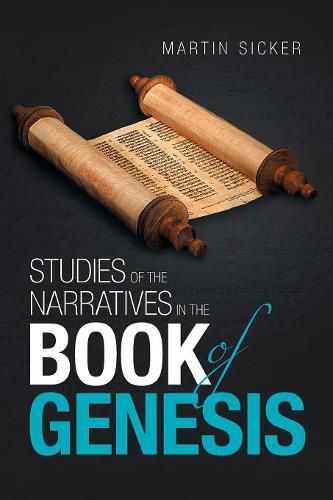Readings Newsletter
Become a Readings Member to make your shopping experience even easier.
Sign in or sign up for free!
You’re not far away from qualifying for FREE standard shipping within Australia
You’ve qualified for FREE standard shipping within Australia
The cart is loading…






This title is printed to order. This book may have been self-published. If so, we cannot guarantee the quality of the content. In the main most books will have gone through the editing process however some may not. We therefore suggest that you be aware of this before ordering this book. If in doubt check either the author or publisher’s details as we are unable to accept any returns unless they are faulty. Please contact us if you have any questions.
The stories in the book of Genesis have been studied intensely for more than two millennia, providing a virtual mountain of commentary on every aspect of the narratives contained therein. Viewed from a traditional perspective, the stories related in Genesis are essentially graphic philosophical and theological narratives designed to convey profound ideas and insights that would otherwise be found only in tomes designed for students of philosophy and theology. A close substantive examination of these narratives, as presented in the Masoretic text but often lost in translation where the subtleties of the Hebrew wording are glossed over, will reveal a treasure trove of insights into the fundamental issues of religious belief, the divine-human relationship, freewill and determinism, the complex nature of humankind, and theodicy, to name a few of the issues dealt with in the narratives. The present work contains four deep dive studies of key interrelated narratives in the first twenty-two chapters of Genesis that address the questions of the nature of man and his relationship to God and, most critically, the distinction between divine justice and human justice. It is the hope and expectation of the author of these studies that the reader will come away from them with even more questions about the biblical texts than they had before. As will be seen, there has always been little consensus over the centuries about the meanings of these essentially right-brained texts, primarily because they are constructed and written in a manner that tends to challenge left-brained analysis. Nonetheless, they remain intellectually important because the topics they deal with are of great pertinence to contemporary society.
$9.00 standard shipping within Australia
FREE standard shipping within Australia for orders over $100.00
Express & International shipping calculated at checkout
This title is printed to order. This book may have been self-published. If so, we cannot guarantee the quality of the content. In the main most books will have gone through the editing process however some may not. We therefore suggest that you be aware of this before ordering this book. If in doubt check either the author or publisher’s details as we are unable to accept any returns unless they are faulty. Please contact us if you have any questions.
The stories in the book of Genesis have been studied intensely for more than two millennia, providing a virtual mountain of commentary on every aspect of the narratives contained therein. Viewed from a traditional perspective, the stories related in Genesis are essentially graphic philosophical and theological narratives designed to convey profound ideas and insights that would otherwise be found only in tomes designed for students of philosophy and theology. A close substantive examination of these narratives, as presented in the Masoretic text but often lost in translation where the subtleties of the Hebrew wording are glossed over, will reveal a treasure trove of insights into the fundamental issues of religious belief, the divine-human relationship, freewill and determinism, the complex nature of humankind, and theodicy, to name a few of the issues dealt with in the narratives. The present work contains four deep dive studies of key interrelated narratives in the first twenty-two chapters of Genesis that address the questions of the nature of man and his relationship to God and, most critically, the distinction between divine justice and human justice. It is the hope and expectation of the author of these studies that the reader will come away from them with even more questions about the biblical texts than they had before. As will be seen, there has always been little consensus over the centuries about the meanings of these essentially right-brained texts, primarily because they are constructed and written in a manner that tends to challenge left-brained analysis. Nonetheless, they remain intellectually important because the topics they deal with are of great pertinence to contemporary society.